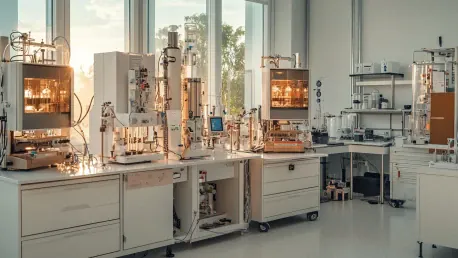In a remarkable advancement for the field of biotechnology, McMaster University and Sartorius have inaugurated a state-of-the-art bioprocessing automation laboratory at the university’s Faculty of Engineering, setting a new standard for bioprocess modeling, simulation, and advanced control. This cutting-edge facility, made possible through funding from the Biosciences Research Infrastructure Fund (BRIF) via the Canada Foundation for Innovation (CFI), is designed to significantly upgrade bioscience infrastructure at postsecondary institutions and research hospitals. The BRIF initiative forms a key component of Canada’s broader strategy to strengthen biomanufacturing and life sciences, ensuring the country is well-prepared to address potential future pandemics.
Strengthening Biomanufacturing and Research
The collaboration between Sartorius, a global leader in life science research and biopharmaceutical manufacturing, and McMaster University represents a significant step forward in bioprocessing innovation. By combining Sartorius’ cutting-edge technology with McMaster’s academic expertise, the partnership aims to develop new bioprocessing solutions and improve existing methods with the help of industry partners. This synergy is expected to leverage the skills of young researchers, thereby enhancing and accelerating biomanufacturing processes, which is crucial for developing better therapies and making them more accessible on a global scale.
Further bolstering this initiative, McMaster researchers have secured an Alliance Grant from the Natural Sciences and Engineering Research Council of Canada (NSERC) for a four-year partnership with Sartorius. This grant focuses on using specialized training equipment to address the talent gap in Canada’s biomanufacturing sector. Since Sartorius joined the McMaster Advanced Control Consortium (MACC) in 2019, the company has contributed significantly to the development of manufacturing processes for treatments involving antibodies, viruses, and other biotherapeutics. These advancements are pivotal in addressing diseases such as COVID-19, cancer, and genetic disorders, underscoring the transformative potential of this collaboration.
Cutting-Edge Bioprocessing Techniques
McMaster University and Sartorius have unveiled a cutting-edge bioprocessing automation lab within the Faculty of Engineering, setting a new benchmark in bioprocess modeling, simulation, and advanced control. This remarkable facility, supported by funding from the Biosciences Research Infrastructure Fund (BRIF) via the Canada Foundation for Innovation (CFI), aims to significantly enhance bioscience infrastructure at postsecondary institutions and research hospitals. The establishment of this lab is a pivotal part of Canada’s broader plan to fortify its biomanufacturing and life sciences capabilities, ensuring the nation is well-equipped to tackle future pandemics. This lab represents a significant leap forward in biotechnology, providing the necessary tools and knowledge to drive innovation and support critical research endeavors. By investing in such infrastructure, Canada reaffirms its commitment to advancing scientific research and preparedness for public health emergencies, solidifying its position as a leader in the global biotechnology landscape.









